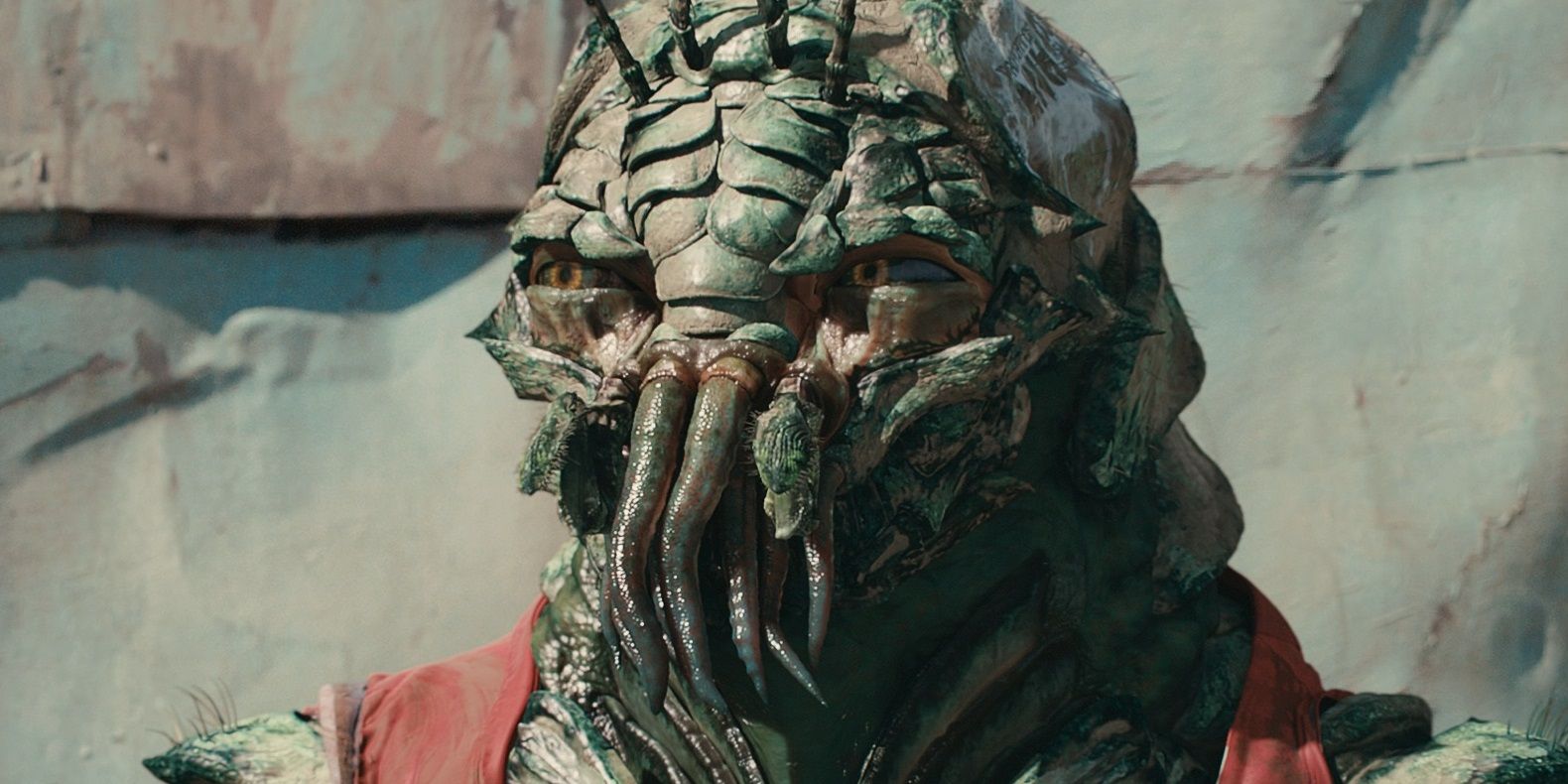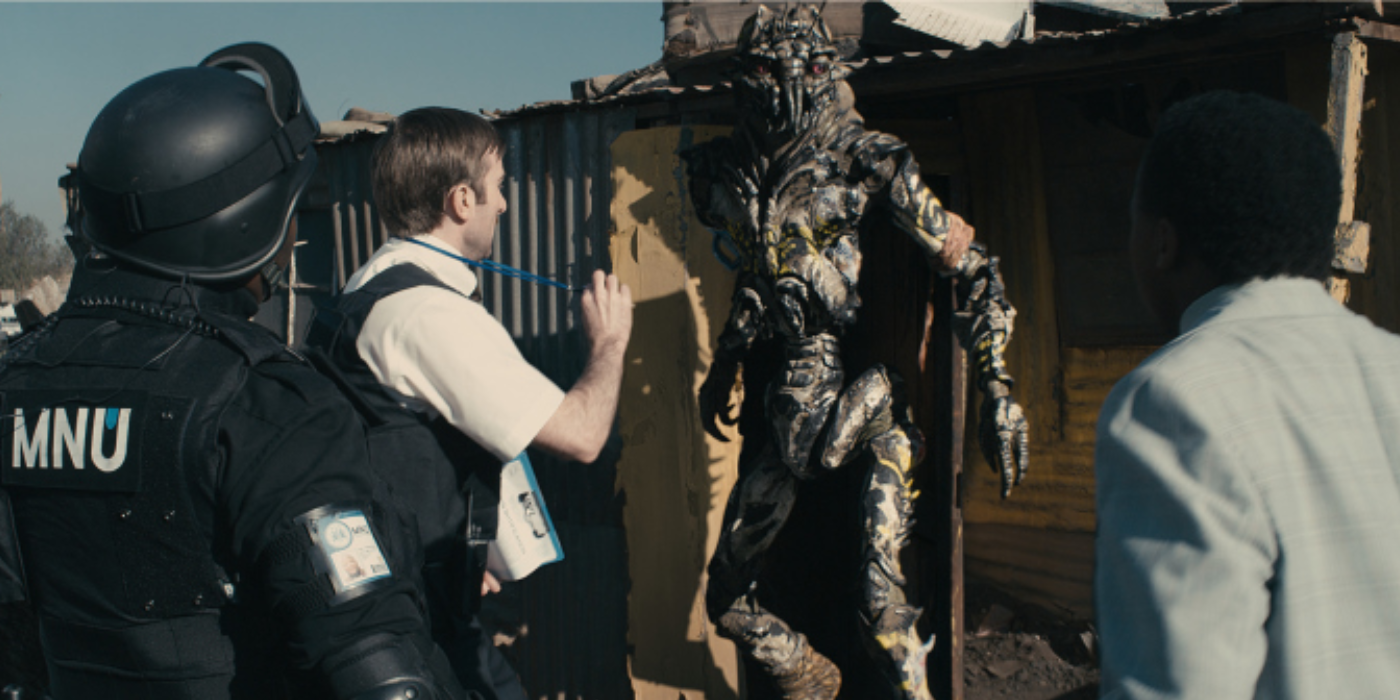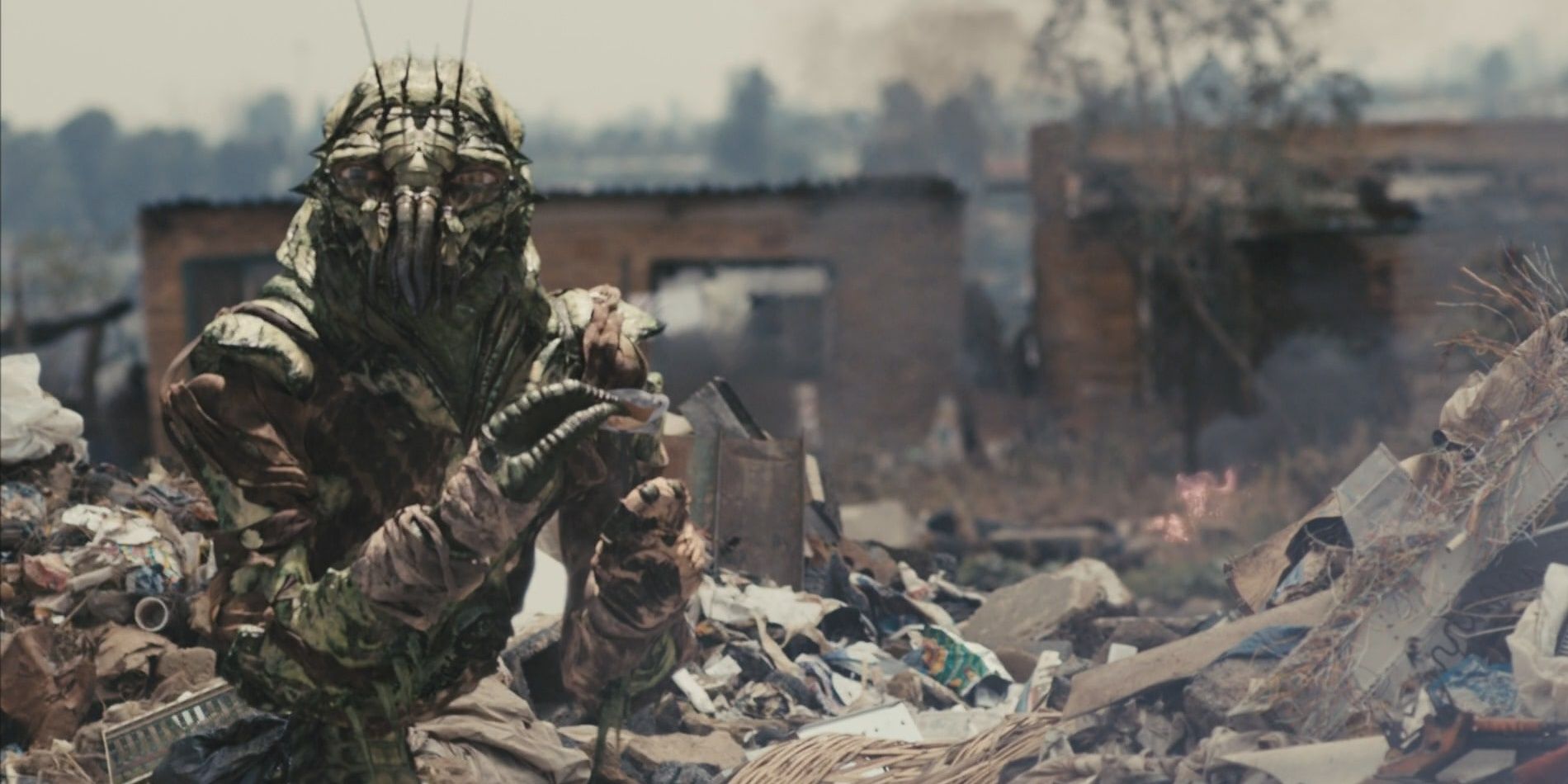16 years later, District 9 still has the power to shock audiences, especially with its unforgettable ending. Director Neil Blomkamp’s feature-length debut remains his most popular and impactful movie, as it remixes familiar sci-fi concepts into something that feels completely fresh. District 9 tells a different kind of first contact story, as aliens mysteriously arrive on Earth, but soon become second-class citizens who are treated as pests by the South African government. Although it’s often seen as an allegory for apartheid, District 9 has enough universal appeal to interest people with no knowledge of South African history.
District 9‘s ending gives audiences plenty to think about, but it also has a weighty emotional impact. This underlines how the whole movie balances its human side with its cerebral sci-fi metaphors. While this obviously helps audiences engage with the subject on a deeper level, it’s also important that District 9 retains its human side while discussing politics. It’s easy to think about apartheid, immigration, class and discrimination in abstract terms, but District 9‘s light touch urges audiences to approach these issues from a more philosophical standpoint.
District 9’s Ending Is Devastating, But Brilliant
District 9’s Ending Captures Its Intelligent Thematic Exploration
After being sprayed with a mysterious alien fluid, Wikus frantically searches for a way to reverse his gradual transformation into a prawn, all the while being hunted by MNU. He winds up inside District 9, sheltering among the prawns, but it’s only when he finds Christopher Johnson again that he finds a concrete solution to his problems. Christopher tells Wikus that there are medicinal machines on board the mothership which could easily heal him, but after witnessing the extreme prejudice wielded against his people, he decides to return to his home planet to get help.
District 9 ends with Wikus having completed his transformation into a prawn, vilified in the media by false stories planted by the government and being forced to wait at least three years for Christopher to return. It’s a devastating finale, with Wikus forced to experience the dire conditions that the prawns must live in every day. As the story progresses, it becomes clear that the prawns aren’t so different from the humans after all. Despite their appearance and their love of cat food, they are just as intelligent and emotionally developed. Wikus doesn’t see this until he becomes one of them, crafting flowers out of garbage to leave for his wife.
District 9 ends by bringing its story full circle. Wikus is introduced as an awkward and slightly irritating office drone who always tries to put on a happy face, even when it’s his job to evict the prawns from their shanty town and trick them into accepting even worse conditions. He ends District 9 having to live under the tyrannical segregation that he so eagerly helped perpetuate. It’s easy to feel sorry for him, but the real victims are the rest of the prawns, who have never had any say in their treatment. District 9 leaves the audience to consider this power imbalance, having shifted their perspective from the human side to the prawns.
The Real Meaning Behind District 9’s Ending
District 9 Reveals The Similarities Between Humans And Prawns
Wikus’ story ends in despair, but the real power of District 9‘s ending comes from its intelligent exploration of its main themes. Even those who aren’t familiar with South African history should be able to draw some parallels between District 9 and other real-world events. The prawns could be stand-ins for a number of historically subjugated groups in different countries and different time periods. The human desire to oppress and control people remains the same, even if District 9 shows that it may dress itself up in bureaucracy and corporate professionalism.
District 9 presents a strikingly lifelike portrait of how societies can become complicit in horrific acts of violence.
District 9 presents a strikingly lifelike portrait of how societies can become complicit in horrific acts of violence. The media are easily manipulated into becoming the mouthpiece of MNU, so much so that people on the street lose any curiosity about who the aliens are, where they’re from or what the purpose of their journey is. District 9‘s ending shows that prawns and humans are more alike than they seem, but economic stressors can easily crush humanity’s innate desire to explore and understand. The humans in District 9 are happy to cast Wikus aside and send the prawns into a prison camp, because their circumstances force them to protect their own interests. When they are told that the prawns’ existence opposes their interests, they have no qualms about mistreating them.
District 9’s Ending Set Up A Sequel That Never Came
District 10 Has Been Confirmed, But Development Seems To Be Stuck
Ever since District 9 became a critical and commercial success, audiences have been waiting for a sequel. Unfortunately, District 10 could still be a long way off. Neil Blomkamp has been keen to explore different projects in the last 16 years, and he has seemed resistant to the idea of a sequel at times. Although District 10 has been confirmed, recent reports about its status have been hard to come by. This is particularly frustrating because District 9 ends on the perfect sequel tease, with Christopher Johnson even giving a timeline of three years for his return.
A District 9 sequel would have a lot of questions to explore. The fact that 16 years have now pᴀssed might change things significantly, but Wikus’ story still feels like it has another chapter to it. The strange alien fuel may hold the key to any potential story moving forward. It’s possible that other humans could start to transform, or that Wikus will find some other way to regain his human form. Of course, the big questions hanging over a potential sequel all come from Christopher Johnson’s mission. His return could be a kind of judgment day for humanity, whether it’s merciful, violent or something else entirely.
District 9’s Ending Is Great With Or Without A Sequel
Even If A Sequel Never Arrives, District 9’s Ending Will Remain Powerful
The very fact that District 9 fans are still postulating on how a sequel could shape up speaks to the hold that the original film still has over people. The ending is so finely crafted that it lingers in the memory long after the credits roll, largely because it works on many levels. Wikus’ devotion to his wife delivers an emotional gut-punch, while the movie’s broader thematic concerns and its specific sci-fi worldbuilding both offer food for thought. District 9 sets up a sequel nicely, but the fact that a second movie has taken so long hasn’t damaged the original’s reputation.
Even if District 10 never materializes, audiences will probably keep watching District 9 for many years. The ending works brilliantly without a sequel, although it has to be interpreted in a slightly different way. While audiences will obviously hope that Christopher returns and Wikus reunites with his wife, the fact that both of these threads are left unresolved brings up the possibility that their stories will end in despair. District 9 shows a cruel system crushing everyone in its path, alien and human alike, so it would be appropriately bleak to consider the fact that Christopher, Wikus and the prawns will never get a happy ending.








